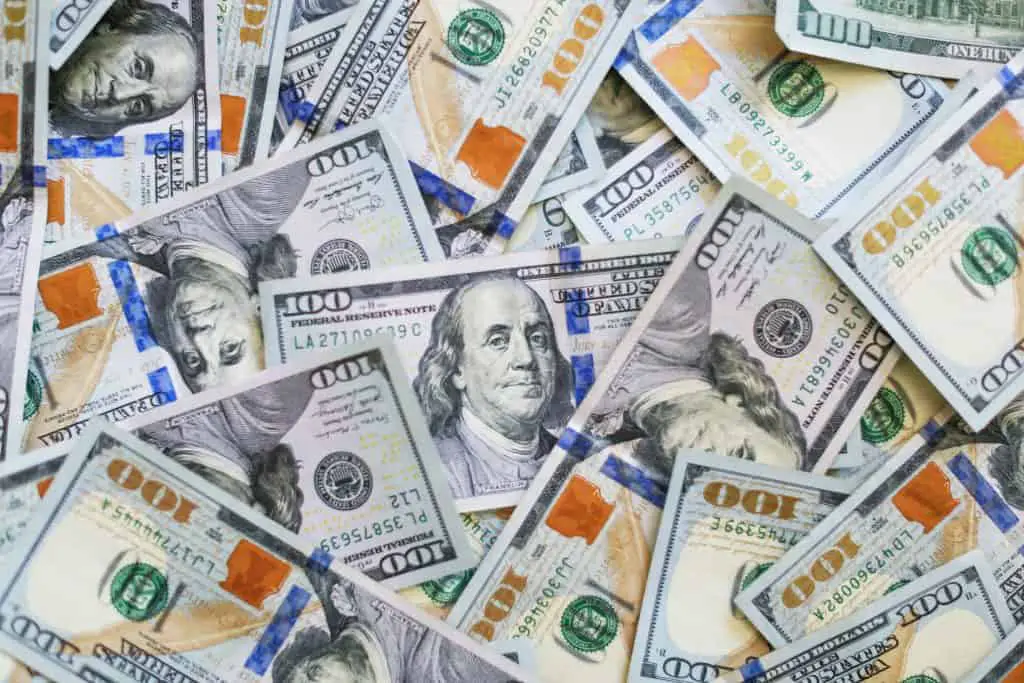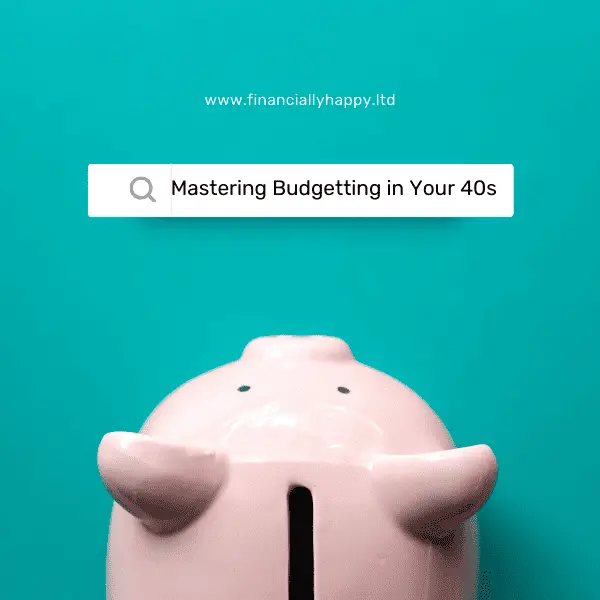What to do with 100k in savings (How to invest your 100k for maximum impact)
So, you’ve managed to save up a hundred thousand dollars. Congratulations!
Now, what to do with 100k in savings?
Invest it? Spend it? Hold on to it until the market crashes (again)?
With all of the options available, it can be tough to make a decision
But it’s not like you can just stick it under your mattress and hope for the best.
You need to make sure that your money is working hard for you, and many options are available.
In this post, we’ll explore some of the best ways to use your hard-earned money. We’ll look at short-term and long-term investments and some other ideas for spending or saving your cash. Let’s get started!
Be sure to make a plan before making any final decisions. 100k can go a long way – but only if you know what you’re doing.
Table of Contents

What should you do with 100k in savings?
First of all, congratulations!
This is a considerable achievement, and you should be proud of yourself. Here are some things you can do with your 100k:
The first thing to do is think long term – what lasting impact do you want this money to have on your life now and later?
This is where a bit of planning will help you make the most of your 100k.
The second thing to think about is assets, not liabilities.
An asset is something that gains you money.
It does this by increasing in value and providing an income.
Stocks, rental property, and businesses do this.
You want as many of these as you can get.
A liability costs you money, like stuff, debt and expenses. You don’t want too many of these.
And thirdly, don’t forget about diversification – be careful about having all your eggs in one basket- if it can make you a millionaire overnight, it can probably destroy you at the same time.
What should I do with 100k in savings?
What YOU should do with 100k savings comes down to what your goals are?
Being very clear on your goals will give you the best steer on what to do with 100k.
Ideally, you would probably want that 100k to have a lasting effect on your life and family beyond just the latest tv and game console.
Here are a few ideas for how to invest and grow your 100k.
Buy to let properties create a source of income and an appreciating asset. The upside of this is that your income and house value should match inflation. The downside is dealing with tenants and broken toilets.
Low cost globally diversified index funds – invest in the world’s great companies, taking advantage of the greatest human ingenuity and inventions.
Unlimited upside but you will need to manage your emotions of fear and greed to stay the course. Your behaviour will be the key to success here.
With investing, the long-term trend is your friend.
In yourself – upgrade your skills and qualifications by taking that course or making that career pivot. Your greatest asset is yourself and your health.
Once you have the new course and experience, no one can take that away from you. The ultimate upgrade is to yourself that will keep compounding year after year.
In an emergency fund – keep you and your family protected by having a serious emergency fund to deal with most crises and them turning into a disaster.
When your world turns upside down, the last thing you want is to lead to a financial crisis.
Pay off high-interest debt – getting rid of this weight will be one of your first and fastest ways to build wealth.
Ongoing debt interest is like treacle to your progress to wealth. 100k could go a long way to getting you out of a hole for good.
What’s the best way to invest 100k?
In the world of investments, 100k is a serious amount of money that can make a big difference in your life.
You might be sceptical about investing, but for most people, it’s actually quite simple – set up an account with a good investment company, throw some money at it every month, then leave it alone to let your investments grow.
Investing is also one of the best ways to ensure that you’ll have money available for you when you retire since many people’s retirement plans revolve around their investment accounts.
However, investing does come with its own set of risks.
Most of these can be managed by understanding good investing principles and managing your emotions around greed and fear.
Investing principles to understand before investing
- Know yourself and understand what will trigger your fear and greed. It would be best not to make investment decisions when feeling either.
- Keep your costs low. Paying lots in fees does not guarantee more return, just that you get to keep less of your money.
- Stay diversified across sectors, companies and countries. Don’t have all your eggs in one basket. A low cost globally diversified index tracker would fit this bill. In this type of fund, losses are temporary and gains permanent in the long run.
- The long-term trend is your friend. Ignore daily, year to year; it’s the long-term compounding growth of stocks you are after.
- Understand the risk between volatility and risk. One is when shares go up and down, and the other loses money. Generally, losing money in a diversified fund is only achieved by human behaviour – greed and fear – jumping in and out at the wrong time.
- Don’t confuse investing – the expected return of your money and more – with speculation where you are hoping, dreaming or wishing for amazing returns.
- Buy stocks when you have the money and sell them when you need the money – not at any other time. Fear is not a reason to sell.
What is the safest way to invest 100k?
This depends on what safe means to you.
If you want your 100k to stay as 100k, then a bank account or a hole in the ground might do that.
But if you want it to maintain its purchasing power, i.e., keep pace with inflation, then you need to invest that 100k in assets that go up in value and provide an income.
Safe in the short-term means putting in 100k and getting out 100k.
Safe in the long term means your 100k has increased in value to maintain your purchasing power.
You don’t want your 100k to be still just worth 100k in 20 years. As it will have probably halved in value over the years.
Safety for your 100k will be centred around
- When you need the money- short- or long-term needs
- If and how you can cope with volatility
- Managing your behaviours around greed and fear
- Where else your money might come from if needed.
Just remember, safety doesn’t just mean keeping your 100k; it also means maintaining your purchasing power.
How much monthly income will 100k generate?
If you use the safe withdrawal rate of 4%, your 100k could produce 4k a year.
Does that sound like enough? or would you need more?
You could withdraw more, but you have a greater risk of running out of money before life—a very suboptimal outcome.
100k is a decent amount of money, but it might be cutting it fine to consider it a decent retirement fund, but that, as mentioned, depends on what good looks like for you.
How much do I need to retire on 100K a year?
If you want to retire on a 100k a year income, you will need to build up a pretty big nest egg.
If you were to use the 25 times rule, which is a guide to how much of a fund you might need to safely withdraw money off and hopefully never run out of money.
So 25 x 100k = 2.5 million.
As mentioned, this is an art, not a science, so the 2.5million is a guide price.
You could, of course, have several sources of income that bring in your needed 100k income, thereby reducing the over fund you need to create.
Is 100k in savings good?
Yes, 100k is a great milestone to reach.
It means that your wealth management is on track, and you’re doing better than average.
Having 100k probably puts you within the top 5%. That’s great news
100k is a lot of money as compound interest – interest on your interest – is starting to have its effect.
100k at 5% will earn 5000, at 6% 600, at 7% 7000 and so on.
If you left this to compound and kept adding to it, it would grow.
If left compounding does its work for long enough one day, it will likely make work optional.
Is 100k too much to have in savings?
It is a lot of money to have sat in a bank account.
But that depends on
- What the money is for?
- When do you think you will need it?
- If you have or can create any other resources of money if needed?
If you wanted a serious emergency fund allowing you not to work for a long time, then 100k in the bank would be ok.
However, if you wanted this money to grow over time, you would need to invest it in something that would increase value, like shares or property.
The biggest threat to your 100k sat in the bank is inflation.
Each year that passes your 100k might stay intact, but each year is worthless.
As inflation eats at the value of your money, your purchasing power is going down and down.
So have enough money in the bank for short term needs and a rainy-day fund but not much more.
Is 100K enough for retirement?
That all depends on what you want retirement to look like.
Being clear on your retirement is a great place to figure out if 100k is enough.
A few key questions to answer will be
- What will your life cost, accommodation, food, leisure, medical etc
- What sources of income might you have?
- Will you stop all work or work part-time?
- How long do you intend to live? Or guestimate, given your health and family history, what age is likely.
This is where understanding if there will be any other sources of income, will be very useful.
These might be
- Work or private pensions
- State pensions
- Ongoing fully time or part-time work
- Rental properties
- Business income from physical or digital products.
Once you add these up with your 100k, does it look like you have enough to retire?
Planning what life will cost in retirement is the best way to ensure you don’t have to choose between eating and heating when you get older.
How much do I need to retire on 100K a year?
If you want to retire on a 100k a year income, you will need to build up a pretty big nest egg.
If you were to use the 25 times rule, which guides the size of the fund, you might need to never run out of money.
So 25 x 100k = 2.5 million.
This is an art, not a science, so the 2.5million is a guide price.
You could, of course, have several sources of income that bring in your needed 100k income, thereby reducing the overall fund you need.
You may need to save less if you have ongoing income into your retirement. You have to make sure it’s the time of job you like doing in your later years, i.e. it’s possible to do it with potentially diminishing agility or strength.
FAQ
Is 100k a lot in savings?
Generally speaking, 100,000 is considered a lot of money to have in savings and can be used to reach financial goals such as retirement, purchasing a home, or starting a business.
While there’s no single answer to whether or not 100k is a lot of money, it is important to have a plan to achieve your financial goals.
Understanding your current financial situation, setting a budget and having an emergency fund are all essential steps to help you reach your financial goals. With the right plan and dedication, you can use $100,000 to make meaningful progress towards the life you want.
What is the best thing to do with 100k?
If you have 100k, there are a variety of options for how you can use the money.
Depending on your goals and financial situation, your best decision may vary.
One of the best long-term investments would be placing the money into low-cost index funds.
If your goals are more short-term, you could place the money into a high-yield savings account, certificate of deposit, or money market account to earn interest while keeping the money secure.
You could use the money to pay off your debts
Ultimately, your best decision will depend on your financial situation and goals.
Consider consulting a financial planner to help you figure out your next best move
Where should I put 100k in savings?
Depending on your goals there are a number of places to put your 100k.
If you think you will need access to the money in the next few years, then high-interest savings accounts might be a good place to put your savings.
If you have a longer-term horizon and are hoping to build long-term wealth then investing in income-producing assets may be your best move.
Long-term wealth-building assets include rental properties, investing in the world’s great companies through the stock market or creating your own business.
How much interest will 100 000 earn in a year?
If you have an interest rate of 4% 100,000 would earn 4k.
If you have an interest rate of 6% 100,000 would earn 6k.
Is 100k in investments a lot?
Yes, 100k in investments is a sizable investment pot.
Investing in the right way it can produce a modest income for you and be a great launch pad to grow your wealth over time.
At 100k compound interest will start to have a noticeable affect on growing your wealth year over year.
What is the best way to invest 100k?
The best way to invest $100,000 depends largely on your financial goals and risk tolerance.
If you are looking for a low-risk, steady return, investing in a savings account, certificate of deposit (CDs), or money market accounts is an option.
If you are looking for a more diverse portfolio, you could consider investing in low-cost index funds. These investments offer the potential for higher returns but also have more volatility.
Ultimately, it is important to understand your goals for this money, do your own research and understand what kind of returns you can expect from each type of asset before making an investment decision.
Conclusion: What to do with 100k in savings
100k is a serious amount of savings and a great achievement.
Using this 100k wisely will be what makes you wealthy in the long run or just a flash in the pan.
Look for ways to invest your savings to work for you.
Creating assets that go up in value and pay you an income will be how your 100k has a long-lasting impact on your wealth.
Things like property, stocks, digital and physical assets, and improving your skills and experience.
Avoid liabilities, things that cost you money like gadgets, clothes and cars, not investments but purchases that lead to more debt.
Remembering the key principles of investing will help you manage your money well
- Have a plan for what you want the money to do for you and when
- Keep your costs low
- Diversify – don’t put all your eggs in one basket
- Understand the risks and rewards of any opportunity
If you would like help with your money and how to get the most out of it, click below to find out more.
If you’ve made it this far, congratulations! You’re already taking steps towards a healthier financial future. But maybe you’re feeling a bit overwhelmed. Maybe the of budgeting, saving, and investing still makes you break out in a cold sweat. Don’t worry, you’re not alone, and help is available.
At Financially Happy Money Coaching, I understand money isn’t just about numbers. It’s about emotions, behaviours, and life choices. That’s why we’re here to help you take the stress out of money and build wealth that aligns with your values and lifestyle.
Whether you’re just starting out on your financial journey or you’re looking to take your finances to the next level, we’re here to guide you every step of the way. I’ll help you understand your financial behaviours, set realistic goals, and create a personalized plan to achieve those goals.
So, why wait? Start your journey towards financial happiness today. Remember, the best time to start was yesterday. The second best time is now.
Click here to schedule your consultation and let’s make your money work for you, not vice versa. 💪💰
Remember, financial freedom isn’t a destination; it’s a journey. And every journey is easier when you have a guide. So, let’s embark on this journey together and create a financially happy future. 🚀💸
📚 Financial Freedom Resources
- The Ultimate Guide To Building Your Savings to $100,000! 📘 is a transformative book that equips readers with principles, strategies, and the mindset 🧠 needed to reach a $100,000 savings goal 💰. It’s a journey towards financial freedom 🚀, challenging beliefs 🤔, embracing new habits 🔄, and overcoming obstacles 💪.
- How to Manage Your Finances: Your Guide to Financial Freedom 📘 is a comprehensive resource packed with practical advice on budgeting 💰, investing 📈, reducing debt 💳, and building wealth 💎. It’s an essential guide for anyone, novice or experienced, aiming to take control of their financial future and achieve financial independence 🚀.
Remember, self-study is a powerful tool for life and financial transformation. Happy reading! 🎉
📚 Financial Freedom Resources
- The Ultimate Guide To Building Your Savings to $100,000! 📘 is a transformative book that equips readers with principles, strategies, and the mindset 🧠 needed to reach a $100,000 savings goal 💰. It’s a journey towards financial freedom 🚀, challenging beliefs 🤔, embracing new habits 🔄, and overcoming obstacles 💪.
- How to Manage Your Finances: Your Guide to Financial Freedom 📘 is a comprehensive resource packed with practical advice on budgeting 💰, investing 📈, reducing debt 💳, and building wealth 💎. It’s an essential guide for anyone, novice or experienced, aiming to take control of their financial future and achieve financial independence 🚀.
- Mastering Budgeting in Your 40s: Your Guide to Financial Freedom 📘 is your essential roadmap to financial savvy. Packed with tips on budgeting 💰, investing 📈, and debt management 💳, it’s the perfect toolkit for anyone in their 40s looking to secure their financial future and sail towards independence 🚀.
Remember, self-study is a powerful tool for life and financial transformation. Happy reading! 🎉










